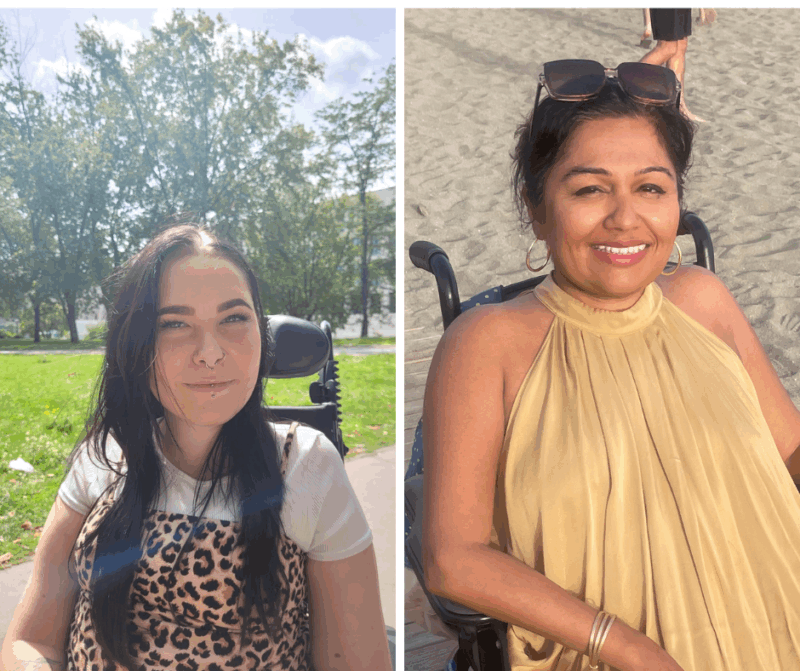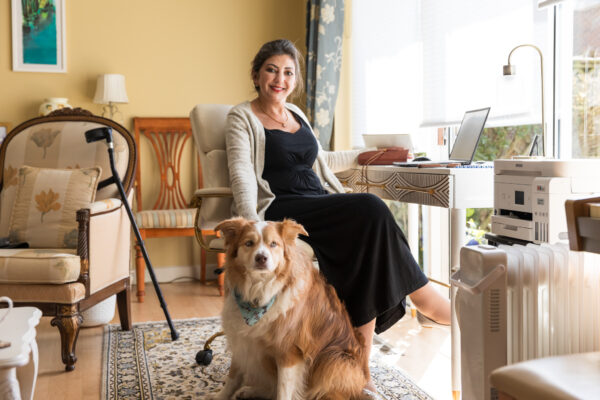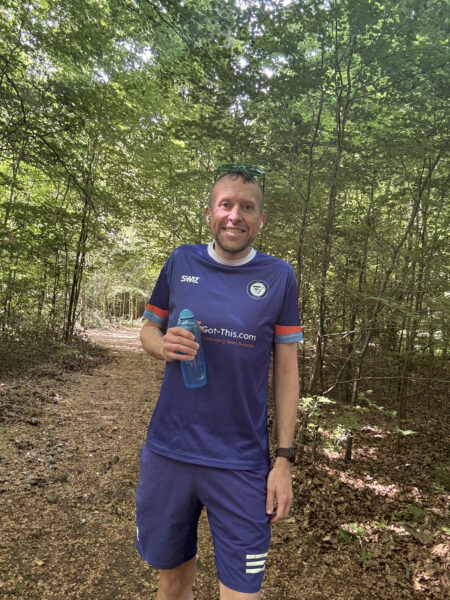Humaar was a budding sports fanatic growing up, but when he was diagnosed with limb girdle muscular dystrophy at age 15, his life changed. He shares how the constant questions from fellow students impacted his mental health, the challenges of accepting the progression of his condition, and how he’s managed to stay part of the sports community he loves.
“My dream of being a professional footballer was crushed by my diagnosis – here’s how I found a new purpose.”

I’d say 15 was one of the most challenging ages in my life. You’re starting to prepare for your GCSEs. You’re developing emotionally and physically. Friendships often rely on being able to keep up. As well as all this, I had to deal with being diagnosed with limb girdle muscular dystrophy (LGMD).
Losing my future plans
I was always slower than other kids. In primary school, I struggled to keep up during PE, but I figured I was just not built for speed. It wasn’t until my right leg and left arm started weakening that we knew something was wrong. By that point, I had already built my life around sports. I played football for Manchester City’s Academy, and my dream was to make it big. Whether that was in football, cricket, or rugby, sport was my passion and goal in life.
“It had taken me years of hard work to get to this point, but only seconds to have my hopes crushed by the diagnosis. And I had no control over it.”
At first, I struggled to even acknowledge what was happening. I still wanted to be like everyone else, but my body had different plans. My right leg and left arm were getting weaker, and walking quickly became a challenge. I soon had to have surgery on both Achilles tendons because I was walking on my tiptoes and falling constantly. That surgery put me in bed for nearly five months, in a wheelchair for a few more months and I then had to relearn how to walk wearing splints.
Returning to school in my splints was brutal. No one had ever seen anything like it before, so people whispered, stared, and asked awkward questions. I found these questions exhausting and almost impossible to answer… I was still trying to figure everything out myself! My friends supported me through it all though; they didn’t care about how I walked and always picked me back up if I fell.
Struggling with my identity
Starting college with students from lots of different high schools was even harder as it felt like I had to start the whole explaining process all over again. I hated the idea of people pitying me.
“I didn’t want to be seen as fragile or different – I just wanted people to accept me for me and know that, although my legs were weak, my brain still worked.”
Eventually I learnt to walk without splints again shortly before starting university, but I still walked differently. It was another environment where I had to explain my condition all over again and I just felt like I couldn’t do it anymore. I made it through my first year, but I wasn’t in a good place, so I left for the sake of my mental health.
I’m 21 now and help out with my family’s construction business doing the admin and marketing. But my body keeps reminding me that this condition isn’t going anywhere. My right leg is starting to feel like it did before surgery, and I have to use an overnight ventilator to support my breathing. I’ve also started finding eating very difficult and having digestion problems, which means I’ve lost a lot of weight. Doctors have given me supplements to drink, but it feels like once they hand you all this stuff, you’re just left to figure it out on your own.
Looking for a new purpose
Losing the ability to play sports was massive for me, and I didn’t want to lose being part of the community too. So I thought of other ways I could be involved. I now do video and photography for friends and local athletes, helping them grow their social media platforms. It’s my way of staying connected to the world I love, even if I can’t physically take part anymore. I also taught myself Photoshop and started making posters, social media content, and marketing materials for businesses.
“Keeping my mind busy is crucial because when I have too much time to think, my mental health takes a hit.”
That’s one of the biggest things that needs to be spoken about more; it’s not just the physical challenges, it’s the mental battle too. You grow up with dreams, aspirations, and then suddenly, your body won’t let you chase them. That messes with your head. I’m slowly finding new dreams, whilst allowing myself to feel what I need to feel.
We’re here to support you
Webinars, Information Days, and support groups for our muscle wasting community. Our life-changing support is here for you.
Advice for living with or caring for someone with a muscle wasting condition.


